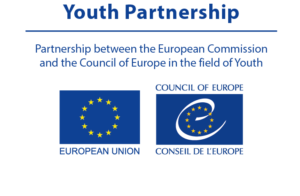Opening address by Mr Tuomo Puumala
State Secretary, Ministry of Education and Culture
Wednesday, 21 September 2022 at 09.00 a.m.
Scandic Simonkenttä, Simonkatu 9, Helsinki
Ladies and Gentlemen,
I am pleased to wish you all a warm welcome to Helsinki and this expert meeting. I believe that after the COVID-19 epidemic we all value the opportunity to meet face to face.
The COVID-19 pandemic has evolved to a global crisis with serious economic and societal impacts. New information and research findings that are steadily being produced help shed light on the repercussions of the crisis. We already know that the crisis has led to greater inequalities in education and wellbeing in a way that is unlikely to disappear once the upheaval is over. Indeed, we need evidence-based decision making.
What we have seen during the COVID-19 pandemic is that quality youth work, done by qualified youth workers, has the ability to react quickly to new situations. The great interest that the peer-learning activity and this expert meeting have generated, indicates a genuine need for formal education and higher education opportunities in youth work education.
The programme of Prime Minister Sanna Marin’s Government – Inclusive and competent Finland, a socially, economically and ecologically sustainable society – emphasises actions that promotes competence, education, culture and innovation.
One outcome that the implementation of the Government programme has produced, is the recently published, updated vision for international activities in Finnish higher education and research. In our vision, we see Finland as a responsible, welcoming and open front-runner in international cooperation. To this end, we need to broaden our international collaboration and strengthen the quality of higher education, research and innovation activities. This includes networking and harnessing the international skills and competences of different actors in all fields, including youth policies and youth work.
The aims and objectives of this expert meeting are well in line with the vision for international activities in higher education and research. If we want to improve the standards of youth work, we must invest in developing youth workers’ education and training in Europe. Peer learning can accelerate the exchange of good practices and innovations while also raising the quality of youth work.
Another important aspect of our vision are the values and principles that we consider important in our everyday activities. Today, we have very complex horizontal issues ahead. It is only by acting together and defending our common values, including human rights, non-discrimination and solidarity, that the EU can tackle the main challenges of our time while promoting the wellbeing and prosperity of its citizens.
In 2022, we are celebrating the European Year of Youth. Indeed, one of the objectives of the year is to boost the implementation of the European Education Area, and of the European Pillar of Social Rights, which highlights that “everyone has the right to quality and inclusive education, training and life-long learning”.
The Council of Europe Committee of Ministers Recommendation on youth work, adopted in May 2017, was the first important step forward in how European youth work is being developed. Two years later, during Finland´s Presidency of the Council of the EU, the Council adopted the Conclusions on education and training for youth workers. In the Council conclusions, we proposed to the Commission that the possibilities for preparing a recommendation on youth work education and training could be explored. While the recommendation would only apply to EU countries, I believe, it could play a key role in developing the education and training of youth work in non-EU countries, too. The Council of Europe may also open doors to cooperation between Member States that have not necessarily worked closely together in these matters in the past.
As much as these political instruments are important, what happens afterwards, is critical. It is very positive that European youth work educators have deemed it important to collect and consider opportunities for future cooperation. I am pleased to see that these two political documents are being taken forward strongly.
Erasmus+, the EU’s education, youth and sport programme, offers many opportunities for cooperation. The considerable budget of Erasmus+ programme for this programming period provides an excellent opportunity for enhancing European cooperation. However, an increased budget is not only a benefit, but also a challenge for using the available resources strategically. Long-term activities (LTAs) and Strategic partnerships are a step towards a more strategic approach. It is worth bearing in mind, however, that European cooperation is only one part of youth work development and it can only supplement but not replace what is being done nationally.
In conclusion, I would like to wish you all every success in this meeting.
Thank you for being here to work on this important matter.


